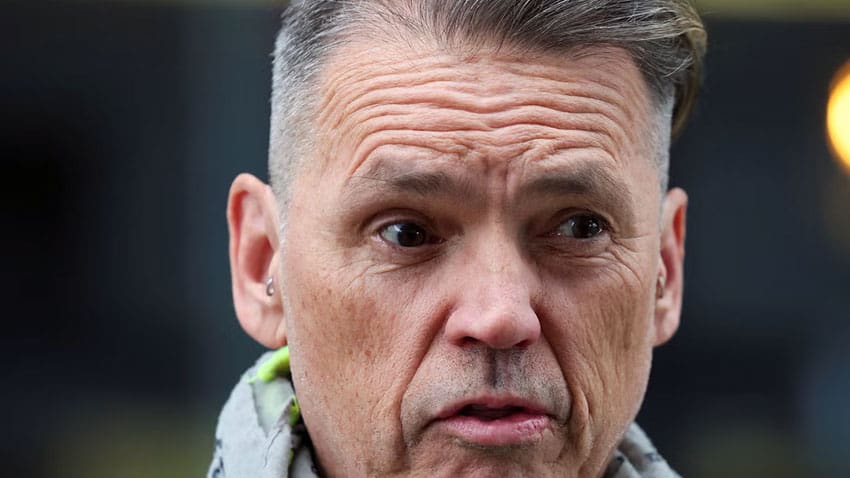Wealthy Individuals Threatening to Leave the UK Over Tax Increases: Dale Vince’s Bold Response
In a climate where the UK government is contemplating tax increases to address a staggering £40 billion fiscal gap, the reactions from wealthy individuals have been swift and vocal. Among the most notable responses comes from Dale Vince, a green energy tycoon and significant Labour donor, who has made headlines with his unapologetic stance on the matter. Vince, who has generously donated £5 million to the Labour Party, has dismissed the notion that higher taxes would drive entrepreneurship out of the UK, labeling such concerns as “profoundly stupid.”
Vince’s comments are particularly pointed. He stated, “If people only live here because they pay less tax, they should f— off.” This bold declaration underscores his belief that the UK is a “brilliant country” that should not be defined solely by its tax policies. He argues that a fairer tax system is not only just but also essential for the nation’s long-term prosperity. His remarks come at a critical time as Chancellor Rachel Reeves prepares to unveil her Autumn Budget, which is expected to include tax increases that would primarily affect wealthy taxpayers.
The Context of Tax Increases
The anticipated tax increases are part of a broader strategy to bridge the UK’s significant fiscal gap. Among the measures being discussed are potential hikes in capital gains tax and reforms to inheritance tax. These changes are aimed at ensuring that the wealthiest individuals contribute their fair share to the economy. In the 2022/23 fiscal year, the top 100 taxpayers in Britain contributed a staggering £3.9 billion in capital gains and income tax, making them a focal point for the government’s revenue-raising efforts.
However, the prospect of higher taxes has prompted a notable reaction from some of the UK’s wealthiest citizens. Reports indicate that over 6,000 millionaires are contemplating relocating to the EU by the end of the year to escape the looming tax hikes. One prominent figure among them is Charlie Mullins, the founder of Pimlico Plumbers, who has put his £12 million London penthouse up for sale, citing fears of a financial “raid” as his motivation for leaving.
Vince’s Stance on Tax and Entrepreneurship
Dale Vince’s perspective is a refreshing counter-narrative to the prevailing fears among the wealthy. He argues that the idea of higher taxes stifling entrepreneurship is misguided. Vince believes that those who are genuinely committed to the UK and its economy will remain, regardless of tax rates. His comments resonate with a growing sentiment that prioritizes social responsibility and equitable contributions over mere financial gain.
While other wealthy Labour donors, such as South African businessman Gary Lubner and Lord Sainsbury, have opted for silence in the face of this tax debate, Vince stands out for his willingness to engage openly. He advocates for a tax structure that is not only fair but also conducive to the long-term health of the economy.
Critique of NIMBYism and Support for Green Infrastructure
In addition to his views on taxation, Vince has also been vocal about the need for green infrastructure in the UK. He has criticized NIMBY (Not In My Back Yard) attitudes, particularly among those resistant to necessary projects like electricity pylons. Vince argues that such infrastructure is vital for the national economy and the transition to a sustainable future. He emphasizes that countryside dwellers must recognize their role in contributing to the broader economic landscape.
Vince’s commitment to green energy is evident in his entrepreneurial ventures. He founded Ecotricity in 1995, which has grown into a significant player in the renewable energy sector. His innovative spirit extends beyond energy; he has also launched Skydiamond, a company specializing in lab-grown diamonds, and owns Forest Green Rovers, a vegan football club known for its commitment to sustainability.
A History of Controversy and Outspokenness
Dale Vince is no stranger to controversy. His outspoken nature has often placed him at odds with traditional business practices and norms. One notable instance was his sharp rebuke of the late turkey magnate Bernard Matthews, where he likened the poultry operations to “a concentration camp.” Such comments reflect Vince’s willingness to challenge the status quo and advocate for ethical practices in business.
As the UK navigates the complexities of tax reform and economic recovery, Vince’s perspective offers a provocative lens through which to view the relationship between wealth, responsibility, and national identity. His call for a fairer tax system and commitment to green initiatives positions him as a significant voice in the ongoing debate about the future of the UK economy.
